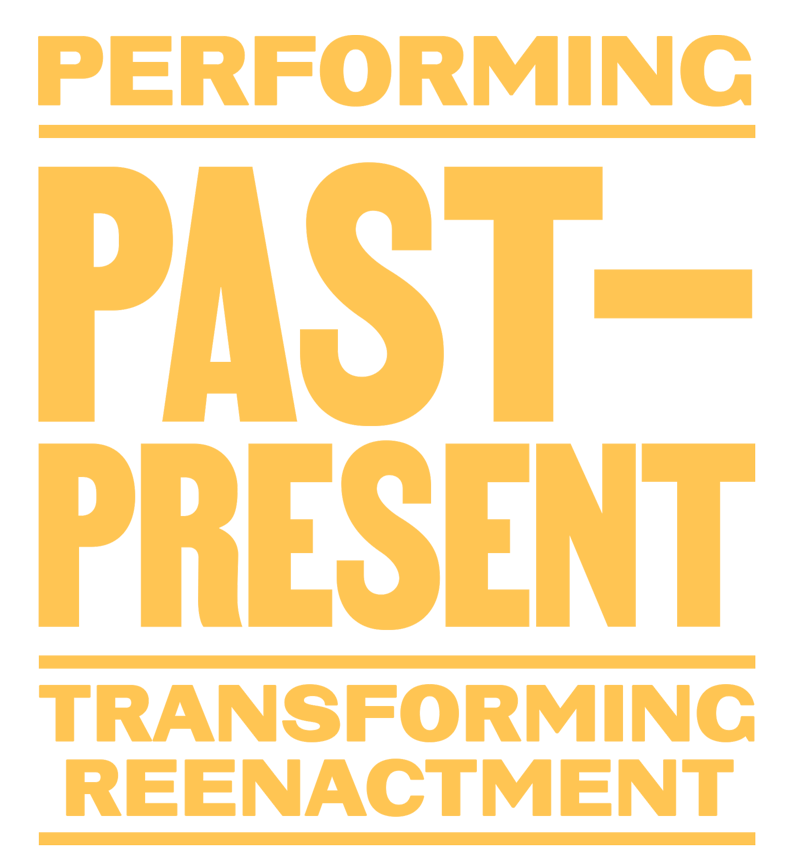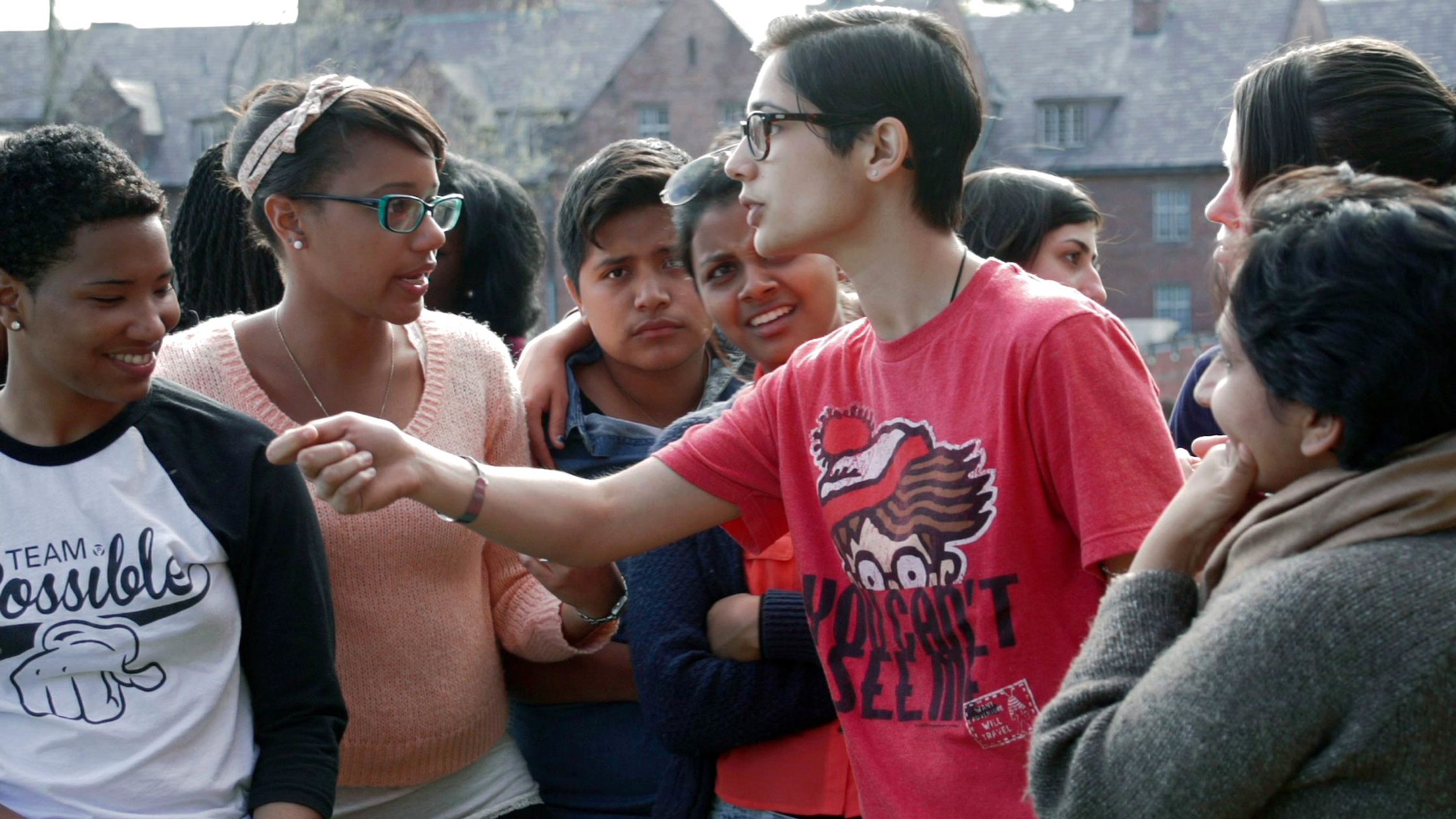VCAM Screening Room
April 19, 4:30 – 6:00 p.m.
This selection of works by Sharon Hayes and Marisa Williamson are presented in conjunction with the exhibition Performing Past-Present: Transforming Reenactment, Cantor Fitzgerald Gallery, March 18 – April 23, 2022.
Ricerche: three (2013) by Hayes is the first segment of a five-part series inspired by Pier Paolo Pasolini’s cinema verité film, Comizi d’amore (Love Meetings, 1963).
Hayes’s Ricerche series “steps off” Pasolini’s film to examine questions of sex, sexuality, and gender-based relations in the contemporary United States. Ricerche: three focuses on an interview and wide-ranging discussion with 35 students at Mount Holyoke, a women’s college in Massachusetts, on topics including studying at the college, patriarchy, feminism, religion, and sexuality. The second work she completed for the series, Ricerche: one, is on view in the Cantor Fitzgerald Gallery. The works in the series are influenced by and expand upon Pasolini’s interviewing methods and subject matter.
Marisa Williamson’s two short performance-based videos, The Fire (“Wild is the Wind”) (2017), and What Would Sally Do? (2013) reflect on the life of Sally Hemings at Monticello in the late 1700 and early 1800s with compassion and insight. Enslaved to, mistress of, and mother of six children with Thomas Jefferson, Williamson imagines Hemings life and interior feelings by embodying her in performance as a woman with agency, and of the past and the present.
Introduction and Q&A presented by Sally Berger, curator of Performing Past-Present: Transforming Reenactment, and artist Sharon Hayes. Special thanks to John Muse, Assistant Professor, and Vicky Funari, Senior Lecturer, of Visual Studies for their support and assistance with the presentation of this program.
Ricerche: three. 2013. Sharon Hayes. U.S. 38 min.
“Ricerche: three uses Pier Paolo Pasolini’s brilliant 1963 film, Comizi d’amore as the guidepost for a contemporary inquiry into the “sexual problem” in the United States. While the political climate in post-war Italy in 1963 was deeply distinct from that of the United States in this contemporary moment, both are sites of a persistent political condition in which so-called value-based policy and ideology act out symptomatically to cover up underlying economic and political vulnerabilities.
Ricerche: three is an expanded (intentionally exaggerated in terms of scale) interview with 35 students at an all-women’s college in western Massachusetts. The interview unfolds on camera in such a way that you’re not entirely sure how many people are being interviewed as interviewees slowly add in as the camera, following the interviewer, shifts across the group left to right.
Using the container of an all-women’s college (with only 47 such institutions remaining in the US), Ricerche: three attempts to address the contradiction that such gender-segregated institutions are “behind” and “ahead” of the rest of society (http://shaze.info/work/ricerche-three/). . .”
The Fire (“Wild is the Wind”). 2017. Marisa Williamson. 5:03 min.
In this short live animation, Williamson imagines Sally Hemings inside Monticello, Thomas Jefferson’s home near Charlottesville, VA, where she lived; Nina Simone’s “Wild is the Wind” inhabits the narrative score.
What Would Sally Do? 2013. Marisa Williamson. 5:11 min.
Williamson performs as Sally Hemings on the winter grounds of Monticello. In her interpretation, Hemings is a woman from an earlier time whose life and spirit haunt the present: she wears a colonial style dress with contemporary sneakers, and exercises, dances, and sings to a rendition of Smokey Robinson and the Miracles 1962 song, “You Really Got a Hold on Me” while tourists walk the estate.
Program length: 90 minutes (50 min. screening time, plus 10 min. excerpt from Comizi d’amore, and 30 min. discussion)
Performing Past-Present: Transforming Reenactment and related programs were made possible with generous support from the Haverford College’s John B. Hurford ’60 Center for the Arts and Humanities, Tuttle Creative Residencies, Distinguished Visitors Program, VCAM Media & Makers Series, Visual Studies Program, and Libraries.

